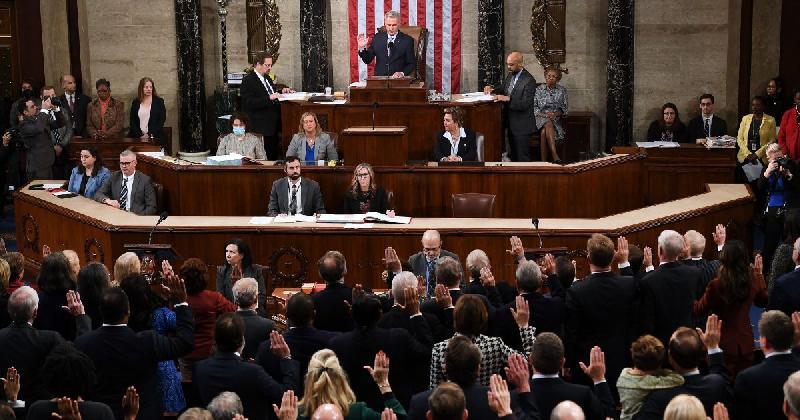A panel of three federal judges has ripped Alabama’s most recent congressional district map to shreds and ordered that the work of producing a new map be taken away from the Republican-controlled state Legislature, Reuters reported Tuesday.
“The law requires the creation of an additional district that affords Black Alabamans, like everyone else, a fair and reasonable opportunity to elect candidates of their choice,” Judges Stanley Marcus, Anna Manasco, and Terry Moorer said in the ruling. “The 2023 plan plainly fails to do so.”
Marcus was nominated by former President Bill Clinton, while Manasco and Moorer were appointed by former President Donald Trump.
In June, the Supreme Court ruled the district boundaries the state used in 2022 violated the Voting Rights Act and ordered that Alabama draw new lines.
In July, a revised map was drawn that left the number of majority-black districts at one but increased the percentage of minority residents in one of the six majority-white districts from 30 percent to 40 percent, according to The New York Times.
The Times reported that “at least one Alabama district could become an election tossup with a new map, given that Black voters in Alabama tend to vote for Democratic candidates.”
Alabama has seven districts, six with Republican incumbents, according to Ballotpedia.
The House currently has 222 Republicans and 112 Democrats, with one vacancy.
The website of civil rights attorney Leo Terrell, who is black and supports Trump, said the ruling is “expected to significantly boost Democrats’ chances to win back the majority in the U.S. House of Representatives in the 2024 election.”
Fox News host Sean Hannity echoed those sentiments as he shared the article from LeoTerrell.com on social media.
The judges’ ruling chastised Alabama lawmakers, saying they “ultimately did not even nurture the ambition to provide the required remedy.”
The ruling said new lines cannot be drawn on the timetable proposed by legislators.
“Based on the evidence before us, including testimony from the Legislators, we have no reason to believe that allowing the Legislature still another opportunity to draw yet another map will yield a map that includes an additional opportunity district,” the judges wrote.
“Moreover, counsel for the State has informed the Court that, even if the Court were to grant the Legislature yet another opportunity to draw a map, it would be practically impossible for the Legislature to reconvene and do so in advance of the 2024 election cycle,” they said.
“We do not take lightly federal intrusion into a process ordinarily reserved for the State Legislature. But we have now said twice that this Voting Rights Act case is not close. And we are deeply troubled that the State enacted a map that the State readily admits does not provide the remedy we said federal law requires,” the judges said.
The ruling said the court faced an “extraordinary circumstance.”
“We are not aware of any other case in which a state legislature — faced with a federal court order declaring that its electoral plan unlawfully dilutes minority votes and requiring a plan that provides an additional opportunity district — responded with a plan that the state concedes does not provide that district,” the judges wrote.
They said the state’s position “illustrates the lack of political will to respond to the needs of Black voters in Alabama in the way that we ordered. We infer from the Legislature’s decision not to create an additional opportunity district that the Legislature was unwilling to respond to the well-documented needs of Black Alabamians in that way.”
Special master Richard Allen, an attorney who has worked with various state attorneys general, and cartographer David Ely were appointed by the court with a Sept. 25 deadline so that the Alabama districts can be in place in October, the Times said.
The state will appeal the ruling to the U.S. Supreme Court.
“While we are disappointed in today’s decision, we strongly believe that the Legislature’s map complies with the Voting Rights Act and the recent decision of the U.S. Supreme Court,” the office of Alabama Attorney General Steve Marshall said in a statement.
The state had argued that during the appeal, the current district lines should be used; otherwise, it said, “the state will be compelled to cede its sovereign redistricting power to the court so that Alabamans can be segregated into different districts based on race.”
via westernjournal

